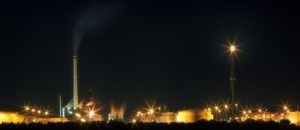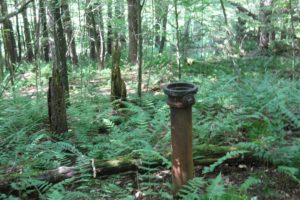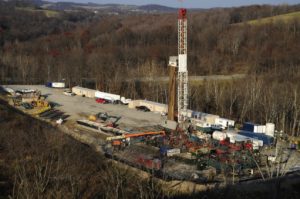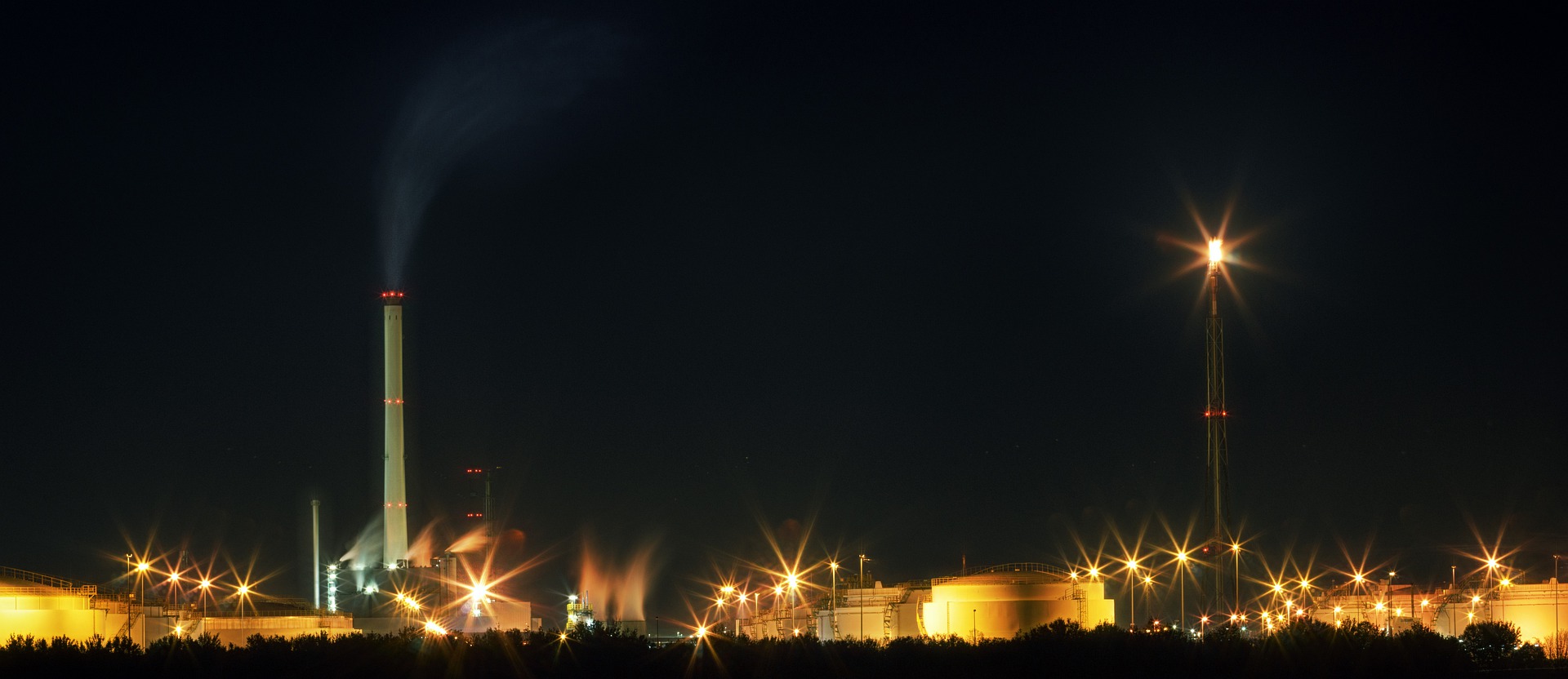
WYALUSING, Pa. — Late Friday, in response to data requests from the Federal Energy Regulatory Commission (FERC), Delaware River Partners and Bradford County Real Estate Partners confirmed that they do not intend to cancel their Wyalusing liquefaction facility and Gibbstown export facility, despite the U.S. Department of Transportation decision last September to suspend authorization to transport LNG by rail car. The Wyalusing and Gibbstown facilities are part of a logistically and financially connected LNG export project contemplated by New Fortress Energy.
If constructed, the Fortress LNG export project will transport explosive LNG by truck, including through the densely-populated, environmental justice communities in eastern Pennsylvania and western New Jersey between Wyalusing, PA and Gibbstown, NJ for export overseas. The Wyalusing liquefaction facility will emit more than a million tons of climate-polluting greenhouse gases and hundreds of tons of toxic air pollutants each year.
The Sierra Club, Clean Air Council, and PennFuture successfully sued to halt construction on the Wyalusing facility in March 2022. Later that year, the Sierra Club and Natural Resources Defense Council filed a petition for a declaratory order urging FERC to exercise oversight over the Fortress LNG export project.
In response, the Sierra Club, Clean Air Council, and PennFuture issued the following statements:
“By continuing to pursue this dangerous LNG export project, Delaware River Partners, Bradford County Real Estate Partners, and New Fortress Energy are putting the lives of millions of Pennsylvanians and New Jerseyans at risk,” said Patrick Grenter, Sierra Club Beyond Dirty Fuels Campaign director. “The last thing we need is even more dangerous methane gas extracted from Pennsylvania, shipped through our communities by truck, and exported overseas — all while residents face worsening illnesses, higher healthcare costs, and increased energy bills caused by gas exports. This decision is unnecessary and reckless, and the Sierra Club is prepared to continue fighting this project until it is officially canceled.”
“The proposed scheme to make liquified natural gas in Northern Pennsylvania, ship it through our communities for hundreds of miles, and then export it to overseas markets from a facility on the shore of the Delaware River is absurd at best and deadly at worst,” adds Abigail M. Jones, Vice President of Legal and Policy at PennFuture. “Despite continued losses that prove just how unworkable this scheme is, these companies are now doubling down on a plan to deliver highly explosive LNG through some of Pennsylvania’s most vulnerable communities via trucks. Pennsylvanians will not benefit from this plan. We do not need more fossil fuel development; we need to focus our economic development priorities on the future: clean, renewable energy and green, sustainable industries.”
“The Wyalusing and Gibbstown LNG facilities promise to lock us into dirty air and millions of tons of climate-heating pollution for decades while raising energy prices at home,” said Alex Bomstein, Clean Air Council Executive Director. “This ill-conceived proposal has no place in our Pennsylvania and New Jersey communities. We will never stop fighting these dirty and dangerous LNG facilities.”

HARRISBURG, PA [August 23, 2023] — Today, PennFuture, the Sierra Club, Clean Air Council, Protect Penn-Trafford, and Earthworks filed a joint lawsuit against the Commonwealth of Pennsylvania, including Governor Josh Shapiro and the General Assembly, challenging the constitutionality of a law that prevents the Commonwealth from protecting communities from the harm caused by abandoned methane wells.
Thousands of abandoned, unplugged wells in Pennsylvania leak methane and other harmful chemicals into the air and water, harming public health and worsening the climate crisis. They mar communities, reduce property values, and depress the local tax base. They are also at risk of explosion.
The Commonwealth has the ability to require oil and gas companies to pay a bond to ensure that these wells don’t go abandoned and unplugged. But in 2022, the Pennsylvania legislature passed Act 96, which removed the Pennsylvania Environmental Quality Board (EQB)’s authority to adjust well bonding amounts and capped the amount for conventional wells at just $2,500 per well.
“When it passed Act 96, the Pennsylvania legislature tied the hands of regulators, blocking them from making common-sense changes to bonding requirements that would speed up plugging of these wells,” said Kelsey Krepps, Sierra Club’s Senior Field Organizer. “This lawsuit asks the court to rule Act 96 unconstitutional under the Environmental Rights Amendment, clearing the way for regulators to adopt policies that keep cleanup costs where they belong: with the operators who profit from these wells, not the communities who have to live with ongoing pollution from abandoned wells.”
Well bond amounts — the money drilling companies have to put aside for cleanup and plugging before being allowed to drill a new well — no longer cover the costs of closing a well, which means if an oil or gas company goes out of business and abandons their wells, the cost of plugging those wells falls to Pennsylvania taxpayers.
“We’d like to see the well bonding amounts reflect the actual cost of well plugging to ensure there is no financial incentive for drillers to abandon their wells and leave taxpayers on the hook,” said PennFuture Senior Attorney Jessica O’Neill. “Sufficient bonding amounts are necessary to protect community and environmental health, as well as local economies, from the pollution that stems from abandoned and uncapped non-producing conventional gas wells.”
The Sierra Club commissioned a report by Dr. Jeremy Weber of the University of Pittsburgh to investigate the bonding amounts for well plugging and the regulatory recommendations that would influence the requests in the two rulemaking petitions. The published 2021 report found that plugging conventional wells costs at least $38,000 per well, 900% more than the General Assembly’s cap.
“If you or I were to dirty someone else’s property, the law would hold us accountable,” said Joseph Minott, Clean Air Council Executive Director and Chief Counsel. “Yet Pennsylvania’s Legislature passed a law to give gas and oil drillers a pass for doing the same thing. That’s not just wrong; it’s unconstitutional.”
“Oil and gas companies will continue to abandon wells recklessly and pollute Pennsylvania communities until our state government requires them to set aside adequate funds to clean up their mess,” said Melissa Ostroff, Earthworks Pennsylvania Policy and Field Advocate. “Current bonding requirements do not protect Pennsylvanians. The rights protected by the Pennsylvania Constitution empower and obligate the Commonwealth to prevent bad operators from walking away from the harmful pollution they leave behind.”
“The Pennsylvania Constitution charges our government with protecting our clean air and water,” said Gillian Graber, Executive Director of Protect PT. “But since they are falling short, we must hold them accountable.”
Carbon Tracker’s Asset Retirement Obligations Portal estimates that it would cost $15 billion to plug all the orphan and abandoned gas wells in Pennsylvania. But the state currently has only
$47.2 million in bonding available to plug these wells.

Harrisburg, PA (November 3, 2022) This afternoon, Governor Wolf signed 66 bills into law, including House Bill 1059, a roughly $2 billion tax credit package, over 90% of which goes toward supporting additional fracked gas (aka methane) extraction and combustion. A gut-and-replace amendment to HB1059 – a previously unrelated tax code bill – was introduced in the Senate Appropriations Committee on October 26th. The completely revamped legislation passed the PA Senate that afternoon and the PA House that evening. The bill provides up to $50 million annually in tax credits for manufacturing facilities located within a future Regional Hydrogen Hub that purchase and burn either methane or hydrogen (2024-2044). The bill also provides an additional $30 million annually in tax credits for petrochemical or fertilizer facilities that purchase and burn Pennsylvania methane as a feedstock (2024-2050).
Joseph Otis Minott, Esq., Executive Director and Chief Counsel of Clean Air Council, issued the following statement:
“We knew HB1059 would become law once it was presented to Governor Wolf. His administration directly negotiated this package and aggressively pushed for it to be rushed through during the last week of legislative session in Harrisburg. Even so, Clean Air Council remains deeply disappointed and alarmed. The text of this bill was publicly available for less than 12 hours before passing through both chambers in the General Assembly. There’s a reason this was negotiated in the dark.”
“Investing an additional $30 million on methane subsidies every single year through 2050 to support a petrochemical refinery boondoggle in Luzerne County is awful policy for state taxpayers and our climate. And the $1 billion investment in manufacturing facilities that burn methane inside a potential Hydrogen Hub has the potential to drive more methane and carbon pollution. The bill doesn’t even define “clean hydrogen” in a manner consistent with the U.S. Department of Energy’s proposed Clean Hydrogen Production Standard, but rather as any hydrogen that “demonstrably aids achievement” of that standard, a massive loophole. Pennsylvania must join the rest of the country in an all-out mobilization to confront the climate crisis, and billions in additional fossil fuel subsidies are simply unacceptable. The next administration needs to internalize this message and embrace a different path.”

